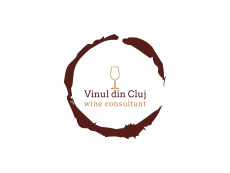
Natural wine, blind tasting, scoring and wine competitions, engaging blogs’ audience, monetizing content, origins of wine and original wines -these were all subjects covered in the second day of conferencing at the EWBC. A very busy day, loaded with interesting sessions, with very little time to run from one conference room to another, page after page on my writing pad getting filled with valuable notes, email addresses, quotes, Turkish wine names, etc. Compared to the first day at the conference, it was much more intense and engaging.
We started early on Saturday morning discussion about Natural Wine, a subject that is hot (or not so hot?) these days. Dr. Jamie Goode argued whether or not there should be a definition generally accepted of the term „natural wine”, and how it would impact the industry. Virgil Joly, a wine producer from Languedoc in France, described the entire process of making organic and natural wine, stressing that natural wine is made by hard work, not by ideals. Maurizio Ugliano, researcher at Nomacorc highlighted the scientific approach to „clean” winemaking, and how can the microorganisms responsible for the qualities and defects of wine be controlled. Finally, Robert Joseph inquired how wide is really the debate around natural wine, and how many people are actually engaged.
We had to wrap up this discussion because another extremely interesting session was about to

begin: Blind tasting, scoring, and wine competitions. Having Charles Metcalfe, Steve DeLong and Justin Howard-Sneyd MW as pannelists was a great opportunity to find about the intricacies of organizing a wine competition, choosing a rating scale, being consistent with the scale and approach, and how the own preferences of the taster will influence the final score. As a consensus, it was agreed that a good wine is not the same thing as a good value wine, which is as well entirely different from a good wine story.
The rest of the morning was dedicated to workshops regarding wine communication and content monetization. Arguably, the wine industry is lagging behind other industries in terms of consumer engagement, as well as gross consumption and sales. What are the others doing and we should do as well, and how can we engage better existing customers, while having a relevant message to non-consumers? There were a lot of relevant exchanges on this topic between the panelists –Ryan O’Connell, Gabriella Opaz and Robert Joseph, mainly highlighting that the wine communication needs a makeover, to „break the bubble” of elitism and technicalities, and ask the public to share the way they would like to hear about wine. The role of the blogger is to get involved in conversations outside wine and enlarge the diversity of topics. Monetizing content is also a topic that raises a lot of attention among bloggers, and we reviewed what could be the different options of a blogger to turn the communication into a money-wise venture: publisher, writer or entrereneur.

The highlight of the day was of course the Grand Terroir tasting, with Charles Metcalfe and Tim Atkin MW. They revealed their research about the origins of vine cultivation and wine making in what we call the Middle East: what type of soils, what varieties, and how they evolved into the wines we know. We had as tasting samples wines from Turkey, Armenia, Georgia and Lebanon, accompanied by extended explanations from the winemakers themselves. Afterwards, we had the opportunity to sample even more local wines from the participating countries, discuss with the producers and exchange contact details. I will cover these wines in a separate article.
The evening (or rather the day) ended with a grand gourmet dinner along Turkish wines, and the dancing party.





[…] prima data vinurile de la Liliac intr-o locatie orientala si exotica (dpdv al vinurilor), respectiv la Izmir, in Turcia. Anul trecut m-am imbatat (la figurat!) cu aromele si culorile din Rioja, Spania, intr-unul din […]
[…] for the rising Turkish wine industry, which I will keep a close eye onto from now on. During the four days I have spent last year in Izmir at the EWBC, I have discovered a world of amazing wines just sitting “around the […]
[…] cinei libaneze si de curiozitate, am deschis aseara si o sticla cu vin libanez, adusa de la conferinta de la Izmir, unde am avut ocazia sa discut cu proprietarul domeniului Domaine des Tourelles, care mi-a facut […]
[…] De asemenea, se mai pot gasi referinte despre vinurile turcesti si orientale in articolele dedicate conferintei EWBC si a vizitelor la […]
Excellent article! Keep up the great work! Best regards from Belgrade! 🙂
Thanks, it is part of an entire series of articles in English dedicated to EWBC. I would appreciate your feedback on the other articles too.
[…] to the EWBC 2012: the BYOB party, the first day of conferencing with the Turkish tasting, and the second day with the Grand Terroir tasting. I have the feeling that this was not my last visit to […]
Toate ca toate, sper totusi ca nu ai trecut la Islam.
Nu, Profetul nu iubeste vinul 😉